Прямой эфир
скрыть
 Птицо Щазтья
13 минут назад
Птицо Щазтья
13 минут назад
 Vitali Klatt
16 минут назад
Vitali Klatt
16 минут назад
 Владимир
21 минуту назад
Владимир
21 минуту назад
 ЧеИзС
24 минуты назад
ЧеИзС
24 минуты назад
 Виктория С
32 минуты назад
Виктория С
32 минуты назад
 Vitali Klatt
48 минут назад
Vitali Klatt
48 минут назад
 Kkm4 Work
1 час назад
Kkm4 Work
1 час назад
 Александр
1 час назад
Александр
1 час назад
 Марина
1 час назад
Марина
1 час назад
 Илона Варга
2 часа назад
Илона Варга
2 часа назад
 Alex
2 часа назад
Alex
2 часа назад
 Хэй Ту
2 часа назад
Хэй Ту
2 часа назад
 Птицо Щазтья
2 часа назад
Птицо Щазтья
2 часа назад
 Игорь Демидов
2 часа назад
Игорь Демидов
2 часа назад
 Мария
2 часа назад
Мария
2 часа назад
 Лилия
2 часа назад
Лилия
2 часа назад
 Мефистофель Страшные истории
2 часа назад
Мефистофель Страшные истории
2 часа назад
 Tipipalm
2 часа назад
Tipipalm
2 часа назад
 OlgaKoch
2 часа назад
OlgaKoch
2 часа назад
 solid
3 часа назад
solid
3 часа назад

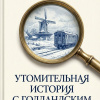

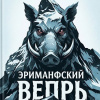
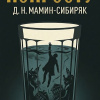
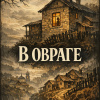
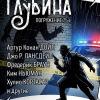
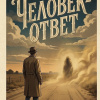

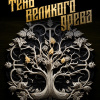

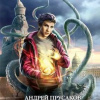
Версификация, то есть переложение прозы в стихи, следует непосредственно за каждым эпизодом, поскольку без предварительного знания текста не будет понятной. Это свойство всех моих сказочных поэм: они не подробно излагают сюжет, а составляют лишь его поэтическую импрессию.
Жанр версификации очень традиционен для романтического искусства и искусства классицизма. Откройте оригинальный текст сказок Шарля Перро, где стихи всегда резюмируют прозу, и вы в этом убедитесь.
Я переводила, сочиняла свою поэму и озвучивала ее с 10 марта 2020 по 25 июля 2022 года, и все это время, постепенно размещая здесь по 5 глав, чувствовала поддержку таких слушателей, как Ирина Будыка:
«Спасибо большое, Елена, за эту чудную сказку. Раньше не читала. Тем интересней было слушать. Пока не всё озвучено, однако понятно, что Добро победит Зло. А это самое важное. Понимаю Вас, что Тонда — любимый герой, правда рано «уходит со сцены». Однако он многое успел сказать.
Главное, Тонда до последнего не терял присутствие духа и подбадривал всех. Сильная личность.
Но более всего мне понравилось поэтическое сопровождение — так кратко, ёмко и выразительно описаны события. Ставила на стоп и слушала снова. Очень талантливо. С нетерпением жду продолжения». Удивительно, что эти прекрасные слова были написаны Ириной в годовщину самого худшего в моей жизни дня — и невероятно подняли мой дух в эту минуту.
Тульская детская художественная школа им. В. Д. Поленова, 2012, рисунок Вики Горкиной с моей правкой образа Тонды — любимейшего литературного героя на все времена.
В полусне – полусолнце,
Как монета на донце.
Послевкусие меда.
Исчезающий Тонда –
Не под крыльями врана –
Под завесой тумана.
Полумесяц и рано.
Полусон, полурана.
А Тонда — Тонда выше снежных гор…
обожаю Ваши озвучки. Спасибо
Вы самый эрудированный и уравновешенный слушатель сайта —
прежде я всегда говорила Клуба, но какой же это — клуб?..
В сообществе книжном,
Как будто не в горнем мы мире,
А в нижнем.
Как будто крикливые
Злобные цверги
Надзвездные выси
В пещеры повергли.
9 ноября 2022 года
«В основе сказки лежат фольклорные сюжеты лужичан, обработанные Пройслером и изложенные в собственной интерпретации.»
вы так это почитайте про Геракла, Одиссея или даже Илью Муромца-в исходных зафиксированных текстах, и предложите это детям))
вообще то есть особый набор «вечных» сюжетов-которое человечество обречено пересказывать
и кто там кому в соавторы набивается-неизвестно, ибо под пластом писменной культуры-лежит устная
но вообще рекомендую начать с Шекспира)) у него вообще ничего своего!
считающийся вершиной Гамлет-лишь плагиат Саксонца Грамматика
Warum schreiben Sie eigentlich
Bücher für Kinder?
Dann antworte ich ganz einfach:
Weil es mir Spaß macht.
Und genausoviel Spaß, wie ich beim
Schreiben habe, wünsche ich
allen Lesern!»
«Иногда меня спрашивают:
почему, собственно, Вы пишите книги для детей?
Тогда я отвечаю совсем просто:
потому что это доставляет мне удовольствие.
И столько же удовольствия, сколько получаю я при сочинительстве,
я желаю всем своим читателям!»
(Отфрид Пройслер)
Свободны и неотразимы!
Пара поэтических строк в конце текста, и ты уже воспринимаешь текст с новыми ощущениями!..
Вы просто не любите стихи, а стихи, это когда возникает особое состояние души, стихи просто так не рождаются, да, их не пишут, они именно рождаются, от возникающих чувств и эмоций.
И действительно, давайте себя уважать ( любить себя необязательно).